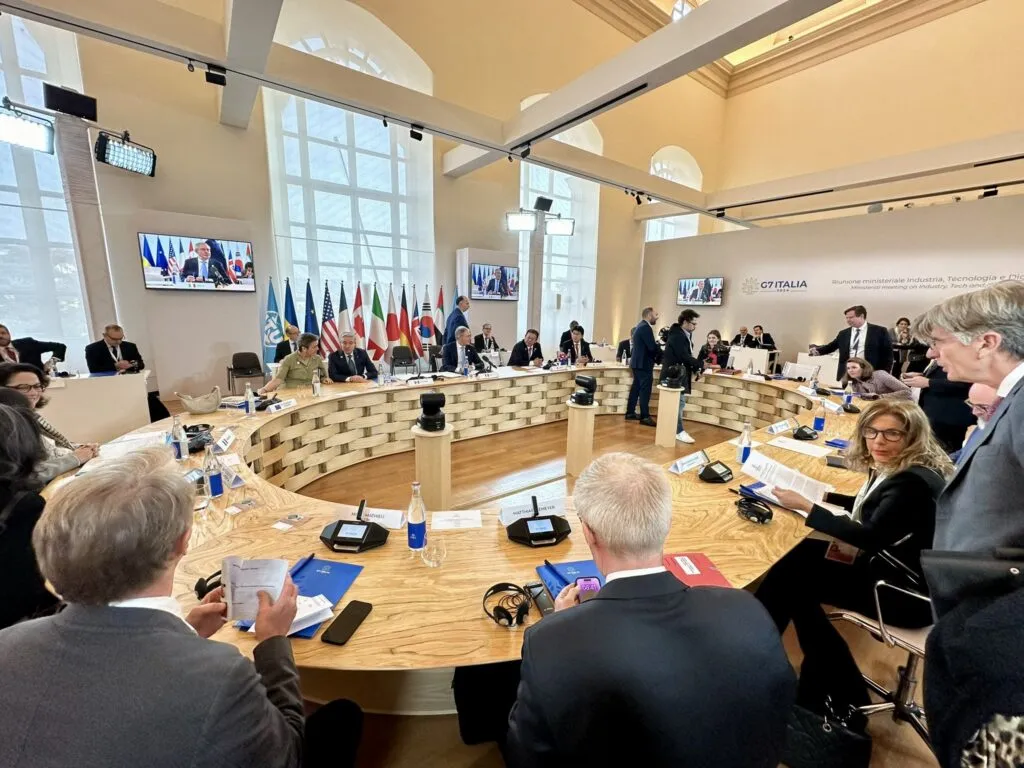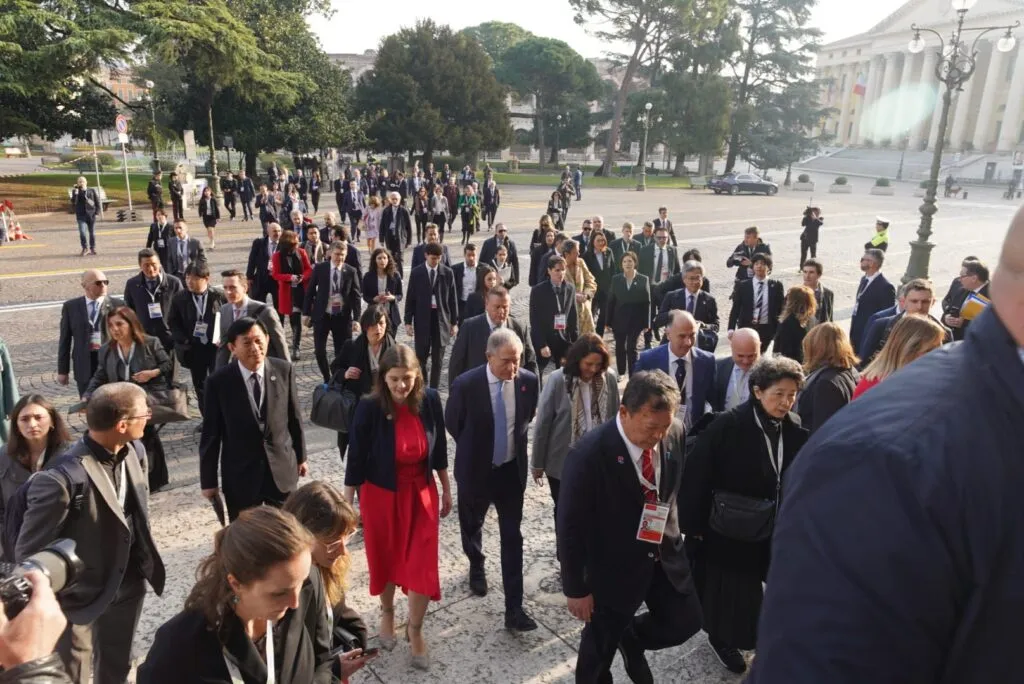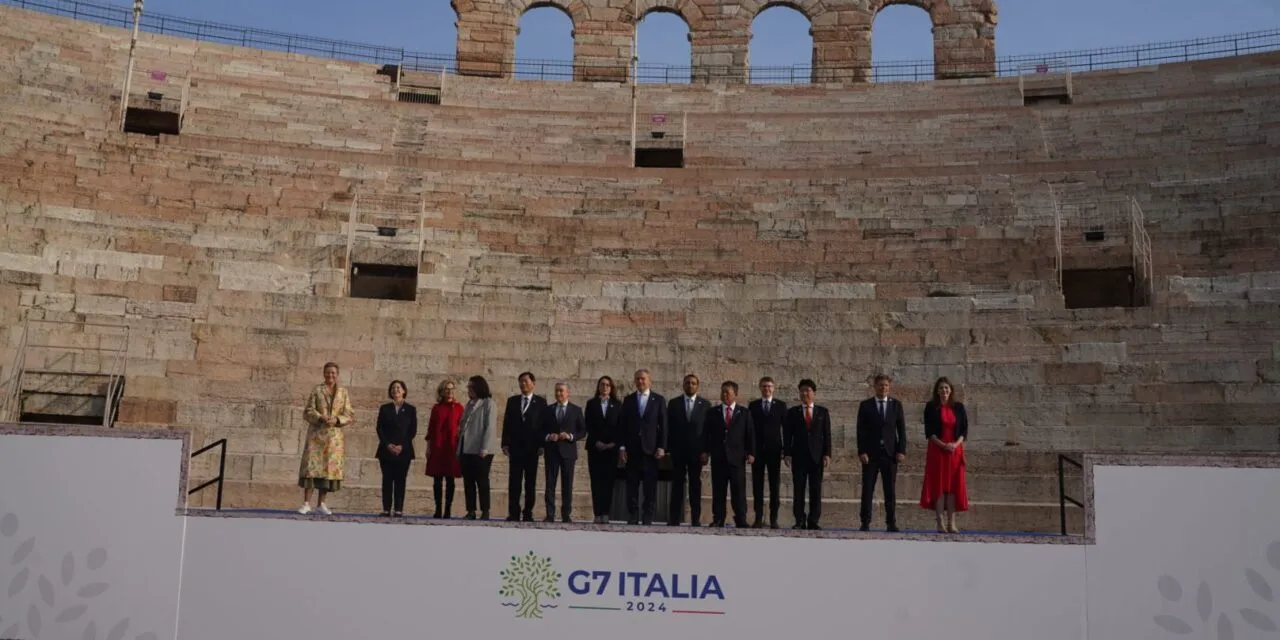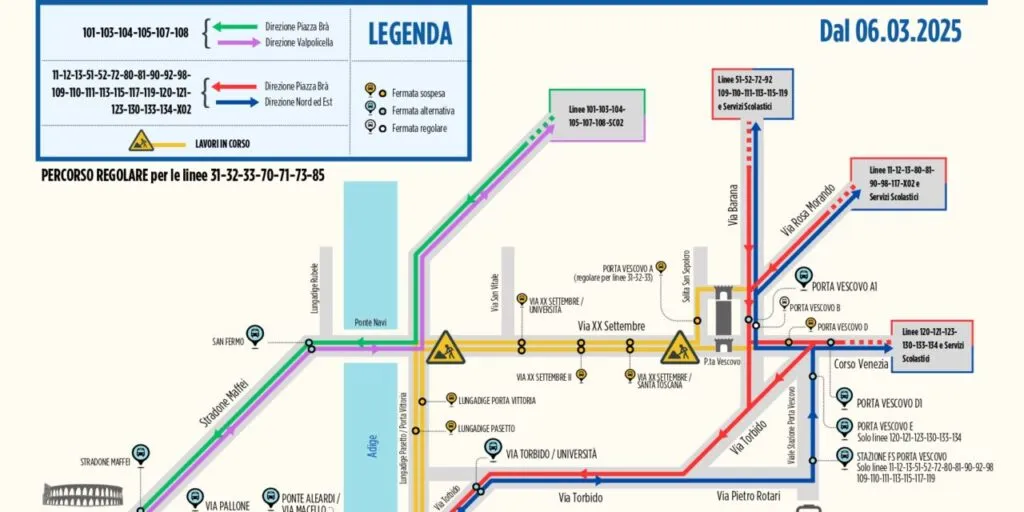On March 14, Verona started the G7 meeting cycle. The first ministerial day included three working sessions at the Gran Guardia that focused on industry, technology, and digital issues. Many topics were covered, including the application of artificial intelligence and emerging technologies to the business sector, the security and resilience of supply chains and networks, and sustainable and inclusive digital development at the global level, with a particular emphasis on Africa, by the Mattei Plan.
As a result, Verona, one of Europe’s primary logistics and intermodal centres, brought together industry, technology, and digital representatives from the seven most industrialized nations, as well as three delegates from other countries. They met at the Gran Guardia but first visited the Arena of Verona for a photo that will go down in city history.
The proceedings were attended by Canada’s Minister of Innovation, Science, and Industry, Francois-Philippe Champagne; Germany’s Vice Chancellor and Minister of Economy and Climate Action, Robert Habeck; Japan’s Deputy Minister of Economy, Trade, and Industry, Taku Ishii; and Japan’s Deputy Minister of Interior and Communications, Junji Hasegawa. The meeting also included the UK Secretary of State for Science, Innovation, and Technology, Michelle Donelan; France’s Secretary of State for Digital, Marina Ferrari; Zoe Baird, Senior Counselor for AI and Employment Development at the US Department of Commerce; and Margrethe Vestager, Vice President of the European Commission. South Korean, Ukrainian, and UAE officials attended the ministerial appointments as outreach countries.


The topics covered during the G7 meeting in Verona.
The first working session focused on ‘Artificial Intelligence and Emerging Technologies in Industry’. The conversation then focused on the influence of AI on various industries, highlighting both the positive features, such as greater productivity, efficiency, and innovation, and the critical aspects. Significant attention was paid to the topic of AI adoption in small and medium-sized businesses, and there were several ideas for collaboration among G7 countries.
The second session covered ‘Secure and Resilient Networks, Supply Chains, and Key Production Factors’. Special emphasis was placed on the function of semiconductors, which are essential to the digital economy, economic security, and resilience.
The third and last session was titled ‘Digital Development: Thriving Together.’ The idea here was to identify specific activities to attain shared objectives. These included reducing digital and gender inequalities by 2030, encouraging long-term economic development, resolving the challenges of digital transformation, and ensuring that technological advantages are distributed equitably.















